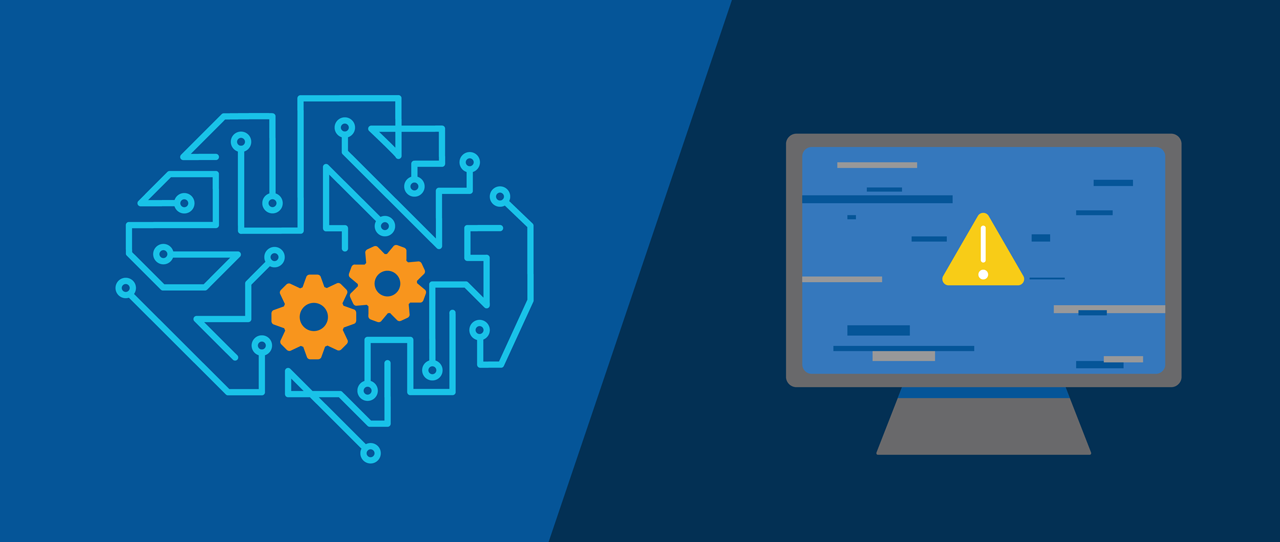There have always been security risks for businesses, now it's just migrated across the physical realm to cyberspace. And today's global world revolves around "information," which relates directly to both companies and customers. Because business operations have become sharper with innovation, so have cyber attacks. The essence of a company itself is transformed by advanced technology.
Cybersecurity raises questions about the very nature of AI software, rendering AI the technological "time bomb" and spurring a debate around whether AI is a blessing, a curse, or both.
With cybercrime estimated to incur damages around $6 trillion per year by 2021, businesses are focusing more than ever on protecting their electronic and organizational assets. Nonetheless, AI becomes a clear and present danger when it starts to serve the interests of threat actors. While the sad truth of AI-driven cyber attacks is imminent.
Cyberattacks supported by AI
Although simplistic machine learning has played a huge part in cyber threats for a number of years, today there is discussion of the specter of aggressive AI: AI-powered cyber attacks capable of inflicting considerable damage globally without the intervention of human oversight.
With the proliferation of IoT devices, hackers have a plethora of new entry points into various computer networks. The impact lies around the fact that these devices are all connected. Imagine your smart thermostat is hacked during a bitter winter cold, and you aren't able to heat up your home unless you pay a ransom.
Malicious AI will constitute the biggest threat erupting from the AI era. Open source AI software can already be used by hackers as a base point. AI's not just going to make attacks quicker or craftier. We probably can't even comprehend the way AI will generate attacks or or how it will be used by cyber criminals. In fact, AI is more than likely the double-edged sword which can even be used by cyber criminals to effectively disguise any attacks they make.
AI can impersonate anyone
This technology can learn the complexities and communication style of a person by studying both email and social media correspondence. So then, cyber criminals can use this comprehension to reproduce the common sentence structures of the user, creating emails that appear to be totally reliable. Therefore, messages written by AI malware will become very difficult to differentiate from actual interactions. As most threats get into our networks through our inboxes, even the most tech-savvy user will be highly susceptible.
Organizations dealing with cyber security issues have more to lose than their digital assets and future earnings; consequences could extend to their clients. 78% of US consumers responding to a CBC survey said the tendency of a company to keep files confidential is very important, and 75% said they will not buy from untrustworthy organizations.
Spear phishing, for instance, can use machine learning to enable threat actors to design more convincing messages to scam the target into giving the attacker access to private information or to download malicious software.
Quicker and better attacks with more successful outcomes
Today's most advanced attacks still need humans to perform target analysis and identify individuals of value, observe their social networks and examine how they communicate with online platforms over time. In the near future, aggressive AI can reach as much complexity in a fraction of the time and with a greater magnitude.
While it is artificial intelligence, there will be far too many pervasive ramifications. Don't fall into the trap of complacency.
Final thought
Decreasing your security protocols in the midst of changing cyber-attack patterns could be a grave mistake. Instead, a detailed, multi-layered strategy should be a standard for organizations. If you need a customized road map for implementing layers of cybersecurity within your networks, contact Tech Titan today.
Check out Titan Tech's managed it support services

